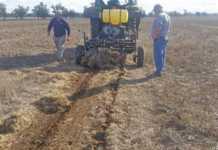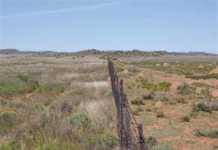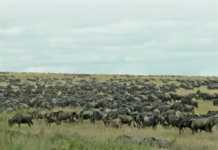As we all know by now, minimum wages for farm workers have been increased by 52%. This is despite an authoritative study by the Bureau for Food and Agricultural Policy which clearly shows the sector can’t afford such an increase. The increase is also much higher than the 2012 average wage increase in other sectors. According to the Reserve Bank, these were at 7,4% in the first nine months of 2012. This inexplicable action by the Department of Labour clearly shows it doesn’t understand basic economic principles.
Production
Labour is a production function, like capital and land. The farmer’s task is to combine different production factors to produce food and fibre at the lowest possible cost. This ensures them a fair income (sometimes) and also means food is available to the consumer at reasonable prices, provided the value chain outside the farm gate operates fairly and efficiently (the fact that this is seldom true is not the subject of this discussion).
If the price of any input increases, economic theory shows that the use of that input will decrease and the use of other inputs will increase. If the price of capital goods increases relative to the price of labour (wages), farmers will employ more workers and vice versa. When farmers face a sharp increase such as the current one, they reconsider the cost of alternatives to labour and, for many industries, mechanisation is a viable option.

Table 1 illustrates this. Before the increase, a farmer could already spend R85 000 to replace one worker on an annual basis. This has now increased to R112 000. Farmers who employ seasonal workers for periods of one to three or more months must adjust the labour cost accordingly. But if we assume that one grape harvester can replace up to 70 workers, and that a wine producer employs temporary staff only for two months, the amount available to replace workers is equal to R1,4 million!
There’s no doubt that the decision to increase wages by 52% will have a negative effect on agriculture. This is in direct opposition to the National Planning Commission’s goal of creating jobs in agriculture. However, the impact is much greater. Chances are that other sectors of the economy won’t settle for measly 7% or 8% wage increases if farm workers got a 50%+ increase. The impact on the total SA economy will be immense.
Violence
The right of workers to strike for better working conditions and wages is internationally accepted. But this does not include the right to damage property. The government allowed the violence to escalate to such an extent that severe damage was caused to private property. The danger of this happening again will be one of the factors that farmers consider when deciding on labour replacement. The message to the SA labour force that violent strikes is a sure-fire way of getting substantial increases will cost us dearly in future.
Conveniently Forgotten
In summary, the labour unrest in the Western Cape was badly handled by government. The fact that very few farm workers joined this protest was conveniently forgotten. Basing a sectoral dispensation on ill-advised popular promises bodes ill for future labour relations in agriculture and other sectors. Farmers will do well to develop contingency plans to reduce their dependence on labour in future. This may be only the beginning of our labour problems in the run-up to the next election.
Dr Koos Coetzee is an agricultural economist at the MPO. All opinions expressed are his own and don’t reflect MPO policy. Contact Dr Coetzee at [email protected]. Please state ‘Global farming’ in the subject line of your email.












